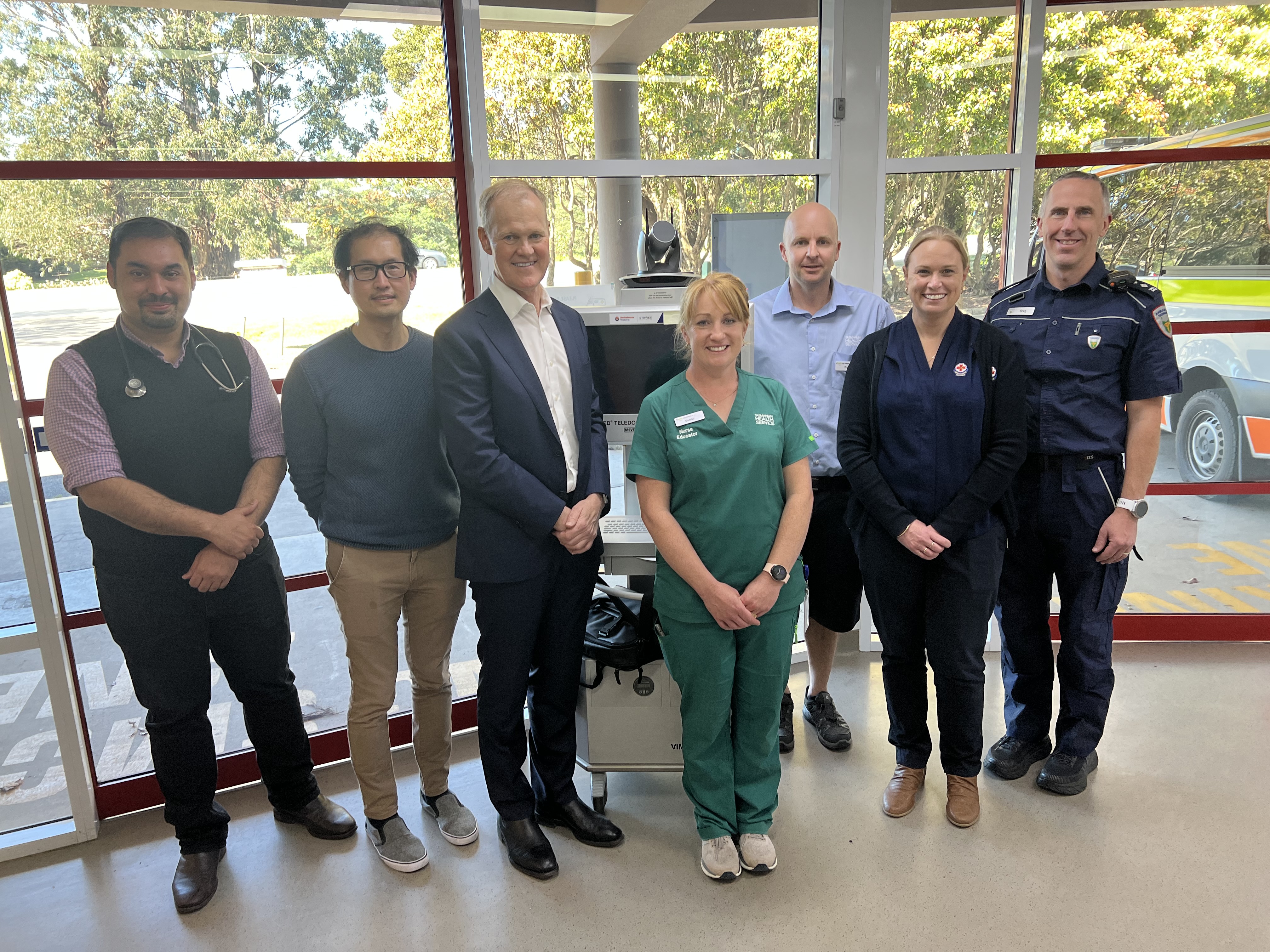The Devonport and wider North West community will benefit from improved access to life-saving stroke care at the Mersey Community Hospital (MCH) following expansion of the Tasmanian Health Service’s (THS) partnership with the Victorian Stroke Telemedicine (VST) service.
Through the enhanced partnership, clinical staff at the MCH will be able to access 24/7 on-call support from stroke specialists at the VST to optimise the care provided to patients who present with stroke symptoms and provide life-saving interventions sooner.
This will be a game-changer for patients attending the MCH with stroke symptoms, as fast treatment for a stroke is essential for achieving the best outcomes in an individual’s recovery.
Representatives from the VST are visiting the MCH this week to conduct a final simulation exercise before the service goes live in coming weeks.
Expansion to the Mersey follows rollout of the VST service to the North West Regional Hospital (NWRH) and Launceston General Hospital (LGH) in March 2020, which are successfully utilising the partnership to optimise the delivery of stroke care to patients.
Using virtual care technology, the telehealth service enables specialist assessment and diagnoses to be made by VST neurologists working with their THS colleagues on site.
Critically, the service saves crucial minutes by enabling life-saving treatments to be started sooner, including provision of clot-busting medicines like thrombolysis.
Many rural and regional hospitals across Australia do not have round the clock access to a stroke specialist on site, but this partnership with the VST service enables clinicians to work together across organisational boundaries to provide time-critical care locally.
Before this time, patients attending the MCH with stroke symptoms would typically be transferred to the North West Regional Hospital (NWRH) and Launceston General Hospital (LGH) for care.
Expansion of the service across the North West is part of the government’s Long Term Plan for Healthcare in Tasmania 2040 – released earlier this year – and reflects the commitment to providing greater access to specialised services in Tasmania and utilising virtual care to deliver services closer to where people live.
The VST service will enable the MCH to provide stroke care in line with the Australian Commission on Safety and Quality in Health Care (ACSQHC), Acute Stroke Clinical Care Standard (ASCCS), and the national Stroke Foundation’s Living Clinical Guidelines for Stroke Management (LCGSM).
A stroke is always a medical emergency. Use the F.A.S.T acronym to remember the signs of a stroke – Face drooped? Arms can’t be raised? Speech slurred or confused? Time is critical. If you see any of these signs, act fast and call 000.
Pictured L-R: Dr Arsalan Mahmud (MCH Emergency Medicine Clinical Lead), Dr Jay Gan (MCH Acute Medicine Clinical Lead), Professor Chris Bladin (VST Director), Sandy Fahmi (MCH Emergency Medicine Clinical Nurse Educator and VST Clinical Lead), Tom Carpenter (MCH Nursing Director of Operations), Dearne Stewart (VST Manager), Greg Whittington (Ambulance Tasmania).

